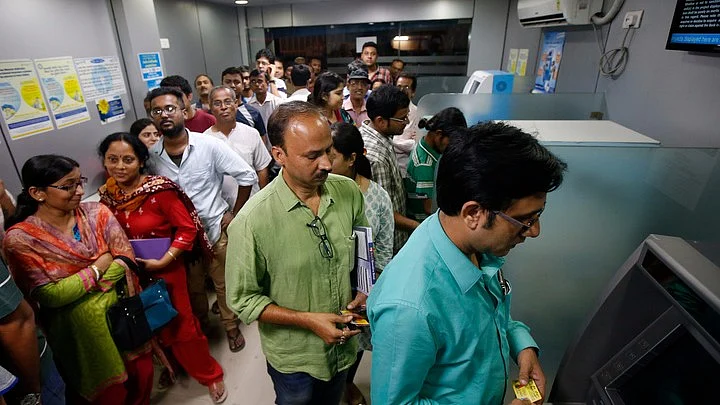First came shock.
Then, a collective sentiment of merry. People lauded Prime Minister Narendra Modi for his policy to demonetise high-denomination Indian currency – Rs 500 and Rs 1,000 – notes aimed towards “curbing” the menace of black money and ill-gotten wealth in the country.
But as the day dawned, many critiqued the decision, making some logical arguments about the loopholes in the move.
What Happens to Those Without an ID?
People Working in the Informal Sector to Be Hit
“How do you expect a chai wallah to leave his business and stand in a queue to deposit these notes in bank?” asked Suryateja Rokkam on Quora.
“This move deeply impacts the working sections of society: drivers, maids, cooks, electricians, plumbers. Anybody who provides services in the informal sector and depends on monthly or bi-monthly cash payments.”
Rokkam further argued that people living in rural India will be massively hit.
“Jan Dhan scheme, UPI/digital payment stack and payment banks are still in the nascent stage. It will be a long time before rural India moves to completely cashless transactions. In the short term, people in rural India who have a significant amount of Rs 500 and Rs 1,000 notes but no official form of identification will have a tough time in exchanging their notes. The big fish will be left out whose black money is in the form of foreign currency, gold and stashed away in tax havens.”
What About People Withdrawing Cash for Marriages?
“There will be some genuine cases like father of daughter today only withdrawing huge amount (say 10 lakh) of money for her daughter’s wedding in next 2-3 days,” wrote Nitin Arora on Quora.
War on Common Man: JNU Professor
CP Chandrasekhar, professor of economics at Delhi’s Jawaharlal Nehru University (JNU) thinks that any Indian who’s acquired “ money from ATMs or as salaries in cash (low paid service sector workers, for example) and who cannot pay with credit or debit cards would have to rush to a closed bank (if she or he needs ‘cash’ tomorrow).”
Talking to The Wire, Chandrasekhar said that this situation is bad enough. Adding to that, are the long term implications.
“What this would do is freeze the payments and settlements system for some time, freezing trade and the functioning of an exchange economy. The prime minister has declared war on the ordinary citizen in his misplaced belief that this can defeat a host of other real and imagined enemies.”
What’s With the 50-Day Deadline?
“There is no debate or talk about the online transactions, bank to bank transactions,foreign exchange and all those other technical methods used by the black money market. Not everyone in this business, have money waiting in their cupboards. Everyday transactions will be tougher though there is a one month deadline, as nobody would want to take a chance with these notes,” wrote Sangeetha Nandagopal, a Dental surgeon.
She further wrote:
“The ratio between total population and total number of banks are not proportionate, hence the already busy banks will get overly crowded.”
People Will Find Some Way to Achieve Transactions
Writing in a blog post, Economist Ajay Shah said that “controlling corruption is not about blocking access to a non-traceable store of value. There will always be precious metals, US dollars, bitcoin, and jars of Tide.” He further argues that “when the sources of corruption are unchanged, people will require some methods to achieve transactions.”
Cash Is a Small Component in Unaccounted Wealth
Cash, Shah explained, is a useful medium of exchange but a very inefficient way to store wealth. “Demonetising high-value notes assumes a Hindi film idea of wealth involving guys with stacks of hard cash in Indian currency. But today, unaccounted wealth is created in the form of front companies, and benami equity stakes.”
